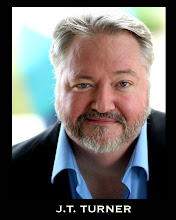You may recall in my last Blog post, I mentioned a favorite book of mine called Year of the King, by Antony Sher. I love this book, re-read it annually, and think it one of the best books on an actors journey to the stage. I had the honor of seeing Mr. Sher on stage in London years ago, and found him riveting.When his production of Primo came to New York a few years ago, I was there to watch a master ply his trade. He appears in several films, including playing the doctor in Shakespeare In Love, but the screen only gives you a hint of his brilliance.
There are two things I want to pass on to you that I have learned from Mr. Sher.One is his research. When he was cast as the hunchback, Richard III, he went to various doctors, hospitals and clinics, learning all he could about "hunchbacks". What causes the deformity, how do people move with it. He also studied famous murderers, since in the Shakespeare play Richard is a murderer. (He was not a murderer in real life, and as a card carrying member of the Richard the III Society, I am quick to say Shakespeare was writing brilliant fiction in his work). Sher read about murderers, watched movies about them and got a sense of them, seeing what he could use on stage. He also watched movies and videos about predators, sharks, lions, tigers, since Richard is portrayed as a predator, and read about spiders, as Richard is called one. And, as an artist, he kept a sketch book about the things he saw.
My point here is that he looked at the character, and did homework about how to portray him. If you are in a light, fluffy community theater musical maybe you won't need research to the extent Sher does it. But when you are in a drama, period piece, classic play, his style may be of great benefit to you in creating a role. I was cast as Dr. Carrasco in Man of LaMancha years ago. He is a secondary character who starts off not liking Cervantes nor the imaginary play he wants to put on. He eventually destroys Don Quixote with the truth. I borrowed an idea from Sher and thought about what animal he was like. I decided on a panther, sleek, dangerous, watching, powerful, a predator ready to pounce. With those ideas as background, my onstage characterization of the Doctor took new and interesting turns, and best of all made the experience more fun for me.
Say you are cast as Julius Caesar. While we should always study the text/script itself, you might also Google "Julius Caesar" to learn more about him, read some historical books about him, watch episodes of "Rome" to get a flavor for the times and political situations during his life.Or perhaps you are cast as Peter Pan. Reading the original book would be good homework, learning more about the author, and perhaps watch a action movie or two with swordplay and pirates to get you in the mood for the role.
The second idea I take from Sher is keeping a diary. The Year of the King is simply his acting diary from the time he was cast till he portrayed Richard on stage.I starting keeping an acting diary as well. It is not nearly as good as his, but it allows me to write thoughts about shows, experiences on the stage, ideas about creating a character.It gives me a venue to return to and see how I approached things, and remind myself of the many journeys to the stage I have had. Looking at how I did things for a certain show in the past may give me new ideas, or remind me of an approach that worked.
 So this Blogs advice is to do your homework, and keep a performing diary. It will make your journey fuller and more rewarding. Because if it isn't fun, why bother?
So this Blogs advice is to do your homework, and keep a performing diary. It will make your journey fuller and more rewarding. Because if it isn't fun, why bother?J.T. Turner
The Actor's Sensei
Coaching, classes and audition preparation for all ages.






No comments:
Post a Comment